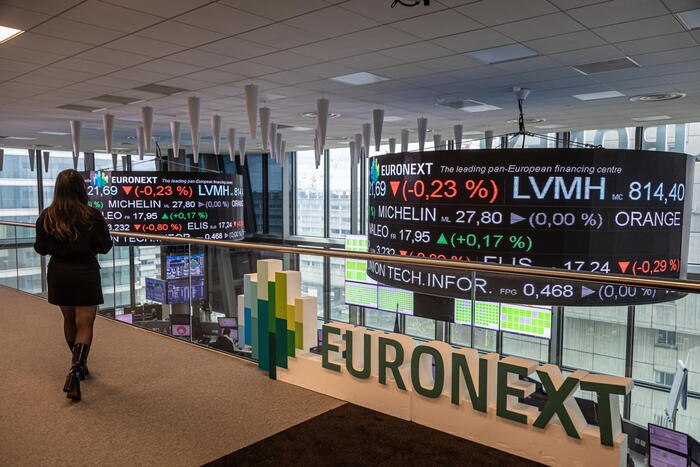The Bayway refinery (New Jersey, USA) owned by ConocoPhillips, in March 2020.MIKE SEGAR / Reuters
Restrictions on mobility are being left behind in most of the West and the gradual return to life of economic activity is giving rise to raw materials.
The most iconic - and still most important - of them all, oil, surpassed the $ 70 level on Tuesday, a level with which it flirted in mid-March, but which goes back to long before the pandemic: crude has not traded steadily at these figures since the beginning of 2019, a year before the lockdown.
In distant memory there are already only 20 dollars for which the European reference (
Brent
) came to be changed when the domino effect of bolts began to stop the advance of the coronavirus.
More information
Energy drives prices, but the risk of inflation running out of control is low: the keys to the CPI
An international group negotiates the purchase of 1% of the world's largest oil company, Saudi Aramco
Crude exporters are betting on an increase in demand and reopen the supply tap
Even when oil is gradually being displaced by renewable technologies in the global energy matrix - this Tuesday the International Energy Agency (IEA, an organism dependent on the OECD) explicitly calls not to start new exploration projects in order to be able to meet the goal of zero net greenhouse gas emissions by 2050—, the strong price recovery suggests that it still has some sane left for a while, unfortunately for the environment.
The end of restrictions on mobility between countries means more air and road movements, and that is always synonymous with higher fuel consumption. The forecasts of increased activity on the part of the airlines are a good example of this change in pattern: the largest European low-cost company, Ryanair, already sees a recovery; and, almost in parallel, the American United Airlines has announced that in July it will add 400 daily flights in its planned connections with European cities. Hotel demand is also pointing in the same direction, with a significant rebound as barriers to leisure travel are lifted.
The other side of the coin is in Asia, where new variants of the pathogen are forcing new closures.
In India, the country in the world with which the pandemic is most primed at the moment, the short circuit of activity has caused a monthly drop of close to 20% in gasoline consumption, according to data compiled by Reuters.
Japan has just announced a new state of health emergency to curb the spread of the virus in some major prefectures, and Singapore is preparing to close schools.
OPEC supports prices
Apart from demand movements, it is important to bear in mind that the oil market has been
de facto
intervened
for
months
by the cartel of member countries of the Organization of Petroleum Exporting Countries (OPEC), which has responded to the
scalextric
economic with significant cuts in pumping to support prices. "As soon as OPEC increases supply, prices will fall again," explains Gonzalo Escribano, an analyst at the Elcano Royal Institute specializing in energy issues, by phone, who sees crude trading in the short and medium term in a range between 60 and 80 Dollars. “It is possible that this summer it could go above 70 or even up to 75, but in that case by the third quarter it will already be on the decline. Nobody is anticipating higher prices, and neither am I, "he adds. "It is true that the vaccines are working and that the demand is pulling, but the producers still have a lot of idle capacity and a lot of tap to reopen."
The rise in oil prices, even temporary, has undesirable effects for importing countries, such as Spain and most of the EU partners. In the first place, because it means paying more for a good that is still very necessary for transport and some industries. Second, because it puts an additional point of pressure on the general price index just when inflation is emitting more and more bullish signals as a result of the increase in the cost of the two main energy items: electricity and fuel. A dynamic that still has its way in the coming months.














